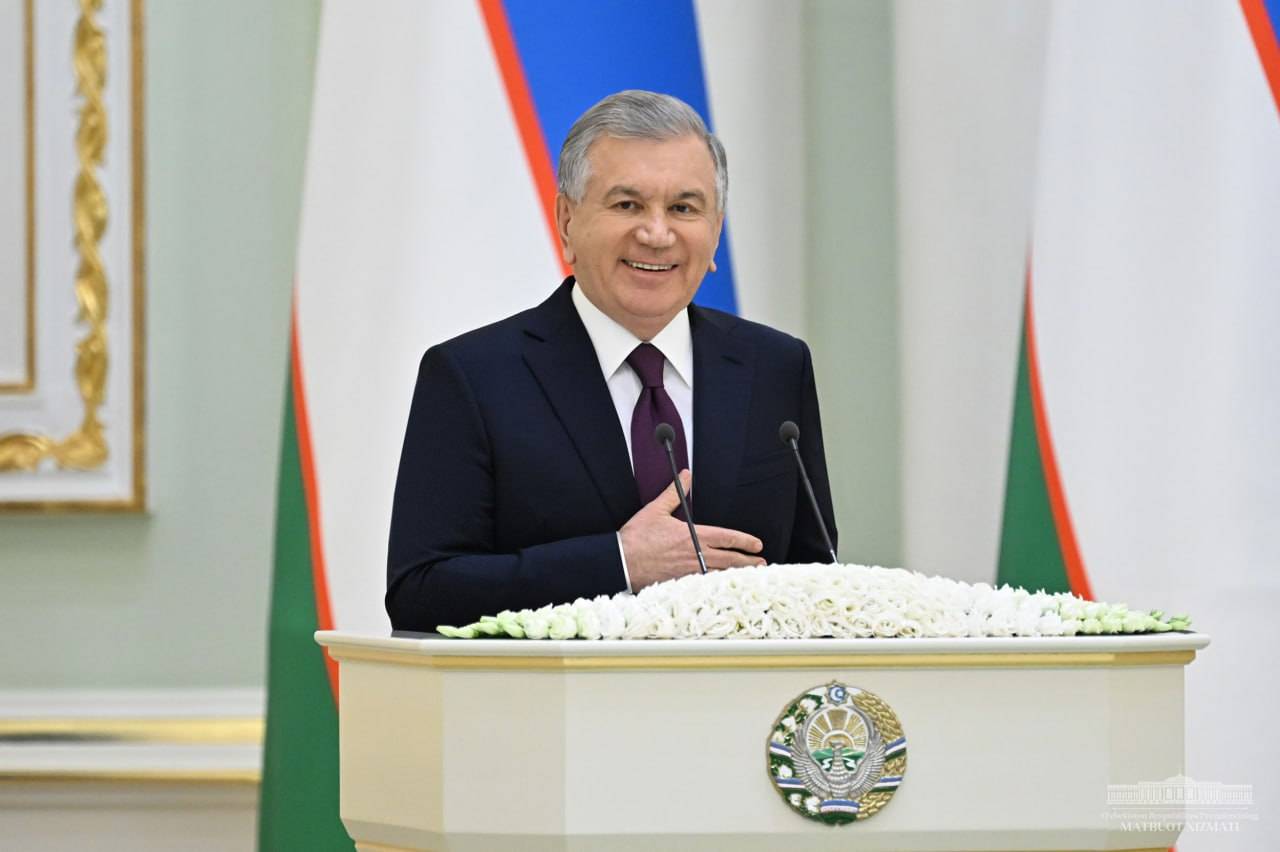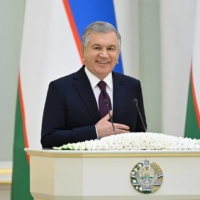The address of President Shavkat Mirziyoyev of Uzbekistan to the parliament in December was one of the main political events of last year.
The central theme of the speech was the building of a “New Uzbekistan,” where the people’s honor, dignity, rights and freedoms are upheld, and where the free, comfortable and prosperous lives of multiethnic people are ensured.
The priorities outlined by the head of state are ambitious. Despite the great progress that has been made over the past six years, the tasks he has set are possible only with the active participation of society and, of course, the hard and effective work of all branches and levels of government, whose potential requires further development.
In this context, the president noted that one of the priorities is the improvement of the Basic Law, which will have to meet the modern development of society.
“In order to take the country’s development to a new stage, it is necessary to change both the system of management, and the legislation of our society. If we do not do this, if we continue to ignore the obvious problems, we will fall behind life and progress,” he said.
“We need to develop a modern constitution, imbued with the goal of ensuring human interests, respect for honor and dignity as the highest values; such a Basic Law, which will fully meet the objectives of building a new Uzbekistan, will serve the future generations.”
Undoubtedly, constitutional reforms aimed at improving the work of government were necessary to implement the adopted New Uzbekistan Development Strategy for 2022-2026. The priority in this case was to harmonize the constitution with the modern realities of society.
Along with a large number of changes (more than 65% of the constitution), which are designed to supplement and specify the rights and freedoms of citizens, to balance the system of power and authority, and to improve the conditions for the full development of citizens and society as a whole, qualitative changes were also made to Chapter IV, formulating the principles and approaches of Uzbekistan’s foreign policy.
The new version of the constitution includes a thesis that “Uzbekistan conducts a peace-loving foreign policy aimed at the full development of bilateral and multilateral relations with states and international organizations” (Article 18).
It is appropriate to quote Mirziyoyev, who spoke at the Shanghai Cooperation Organization summit in Samarkand in 2022. The head of state noted that humanity is in a period of historical upheaval, when one era ends and another begins — even more unpredictable and unknown.
In the emerging difficult conditions, the role of regional communities united by well-established economic and humanitarian ties and, at the same time, promising plans and projects aimed at further strengthening interconnectedness, is critically important.
In this context, the region of Central Asia deserves special mention for its work in recent years. Thanks to the collective efforts of all five countries — Kazakhstan, Kyrgyzstan, Tajikistan, Turkmenistan and Uzbekistan — this region has been rapidly changing and gaining stability.
Undoubtedly, the decisive factor that has served as a trigger for increased cooperation in Central Asia in recent years has been Tashkent’s new foreign policy, which took shape after the election of Mirziyoyev in 2016.
The changes in Tashkent’s diplomacy have created conditions for the formation of a healthy political climate in the Central Asian region. The implementation of a new policy based on the principles of mutual trust and good neighborliness has promoted progress on many long-standing issues.
Over the past six years, conditions for the gradual completion of the legal registration of the state borders of Uzbekistan with Kazakhstan, Kyrgyzstan and Tajikistan have been ensured, visas with Tajikistan have been canceled and transportation routes — via rail, air and land — have been resumed to overcome their disruption from the mid-’90s.
Moreover, investment cooperation has intensified, and significant cooperation projects in trade, industry, energy, transport, agriculture and other sectors of the economy have been launched. If we talk about trade, it has grown by more than 2.5 times. The number of joint ventures has increased by more than five times — from 312 to 1600.
Today, stable Central Asia is already becoming one of the important centers of investment activity and economic growth. According to a number of experts, the combined gross domestic product of the region’s countries in the past five years has grown by 20% and exceeded $370 billion.
In terms of Uzbekistan alone, trade turnover with the countries of the region has increased to $7.4 billion.
The result of the general changes in Central Asia has been the consistent development of agreed positions by the states on intraregional issues and close coordination in international platforms, such as the United Nations, the Commonwealth of Independent States, the Shanghai Cooperation Organization, the Organisation of Islamic Cooperation, the Economic Cooperation Organization and other platforms.
The national referendum on altering the constitution, and the support of the population for the innovations in the Basic Law, which was backed by more than 15 million citizens (90.2% of those who voted), have confirmed the correctness of the chosen course in Uzbekistan.
The constitutional reform of Uzbekistan was an important step in the development of the country and the strengthening of democracy, human rights and the rule of law. The thesis on a peaceful foreign policy enshrined in the new Constitution of Uzbekistan should be regarded as a fundamental change that demonstrates not only greater responsibility and maturity of the state, but also an understanding of the prospects for cooperation with its neighbors in the region, with whom the country is united by common history, common values, culture and religion.
Properly formulated goals and no less consistent implementation will be important factors in the sustainable development of the entire region. Deeper interconnectedness with our neighbors will make Uzbekistan stronger and the Central Asian region more stable and sustainable.




